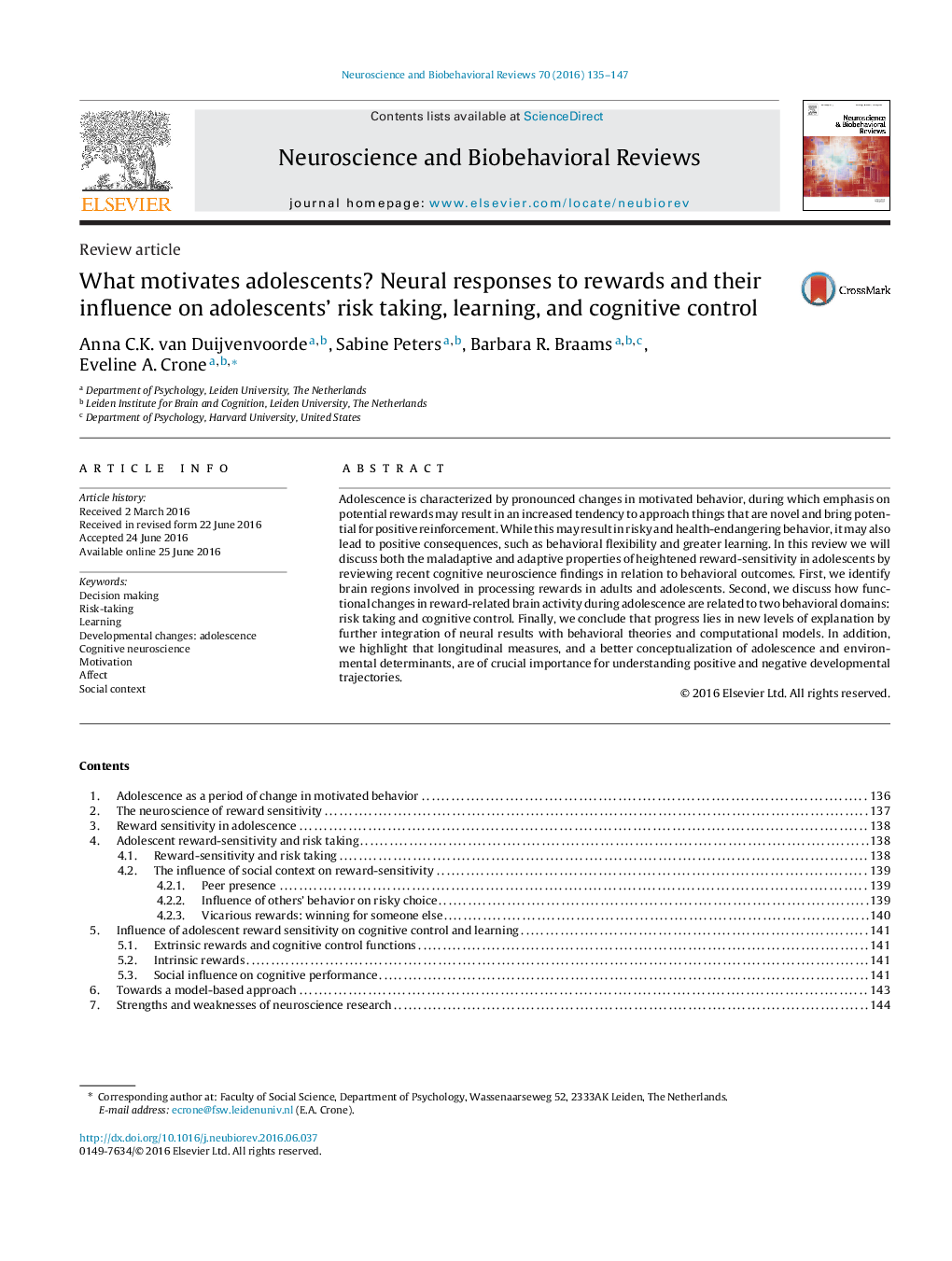| Article ID | Journal | Published Year | Pages | File Type |
|---|---|---|---|---|
| 5043592 | Neuroscience & Biobehavioral Reviews | 2016 | 13 Pages |
â¢Adolescent motivated behavior changes prominently, emphasizing potential rewards.â¢We review developmental changes in reward-related brain function and behavior.â¢Neural reward-sensitivity may lead to adaptive and maladaptive behavioral outcomes.â¢Behavioral-models may further refine our understanding of adolescents' motivation.â¢A better conceptualization of adolescence is key in studying motivational change
Adolescence is characterized by pronounced changes in motivated behavior, during which emphasis on potential rewards may result in an increased tendency to approach things that are novel and bring potential for positive reinforcement. While this may result in risky and health-endangering behavior, it may also lead to positive consequences, such as behavioral flexibility and greater learning. In this review we will discuss both the maladaptive and adaptive properties of heightened reward-sensitivity in adolescents by reviewing recent cognitive neuroscience findings in relation to behavioral outcomes. First, we identify brain regions involved in processing rewards in adults and adolescents. Second, we discuss how functional changes in reward-related brain activity during adolescence are related to two behavioral domains: risk taking and cognitive control. Finally, we conclude that progress lies in new levels of explanation by further integration of neural results with behavioral theories and computational models. In addition, we highlight that longitudinal measures, and a better conceptualization of adolescence and environmental determinants, are of crucial importance for understanding positive and negative developmental trajectories.
